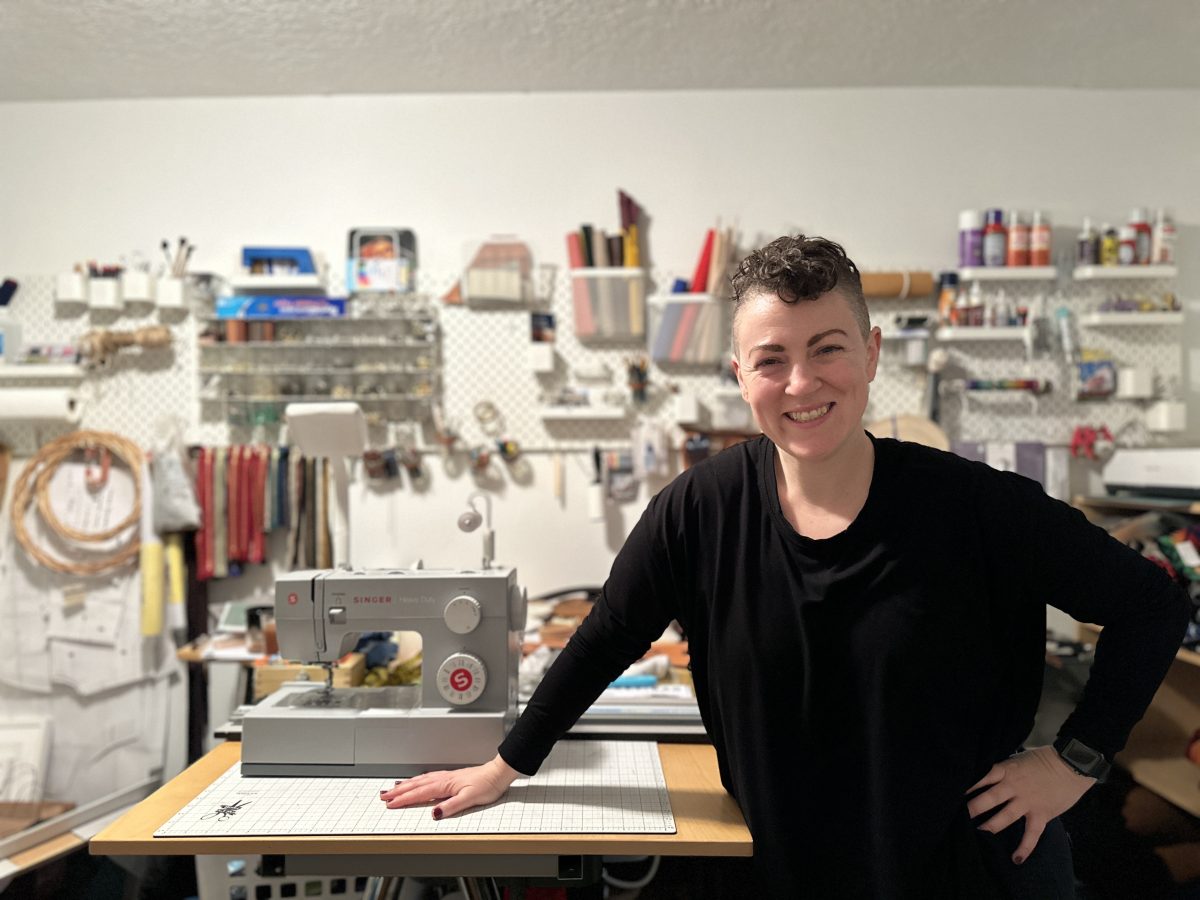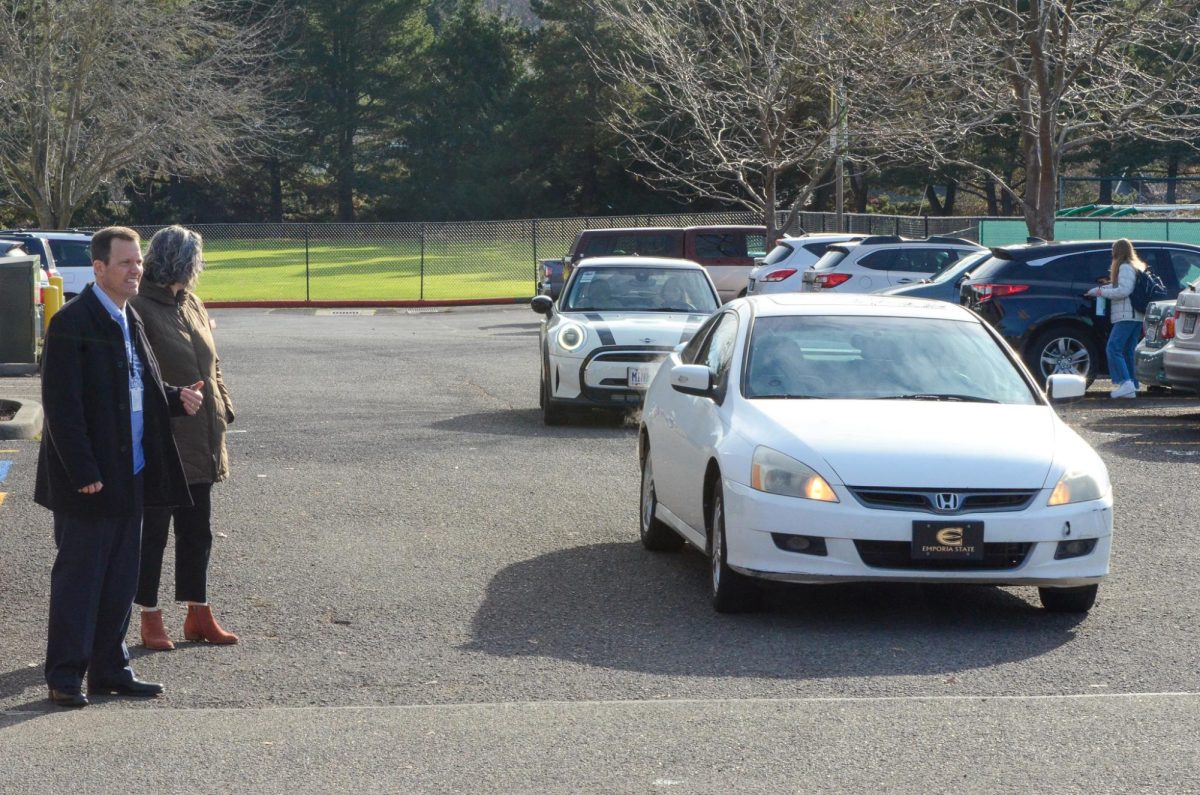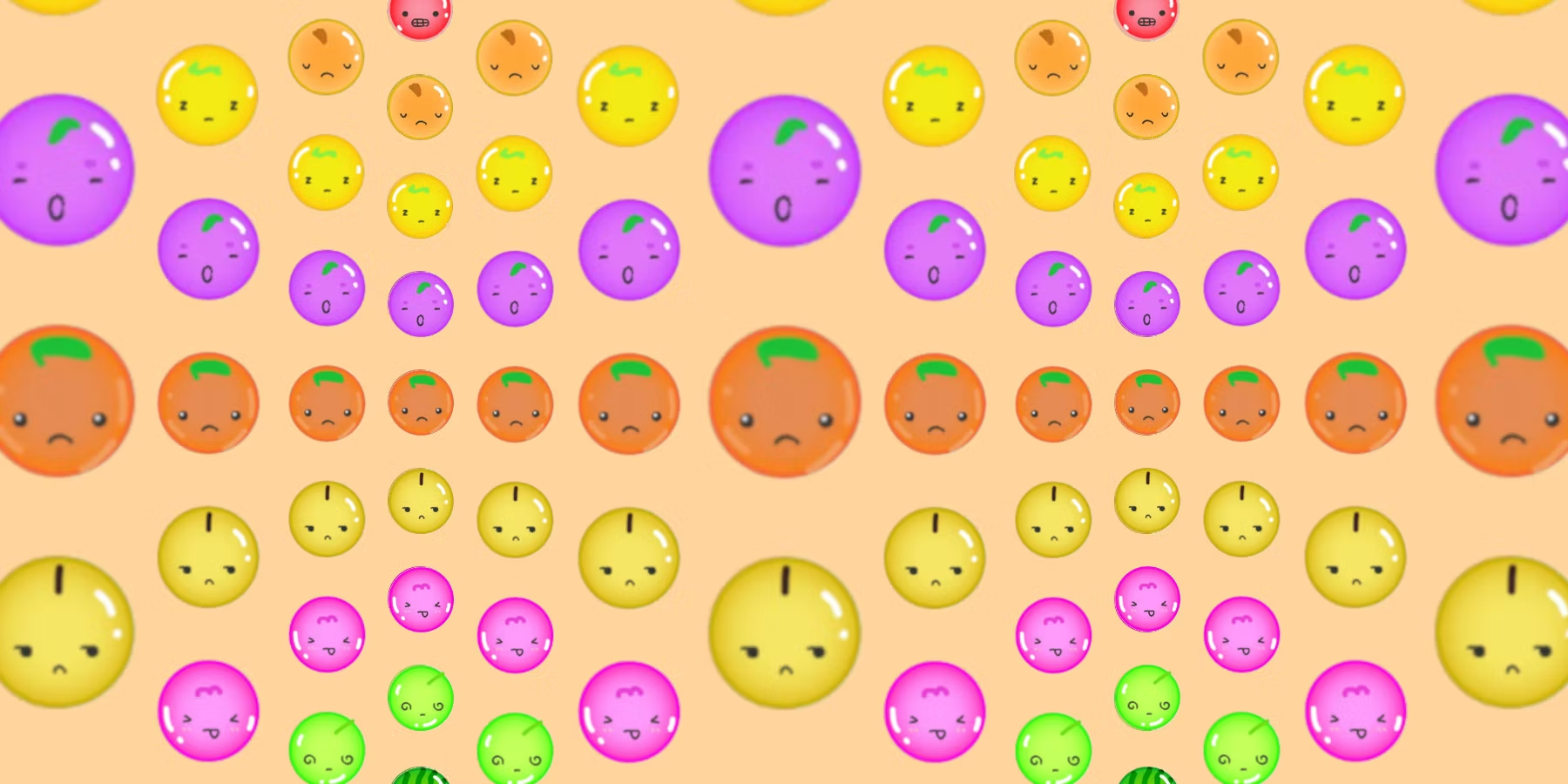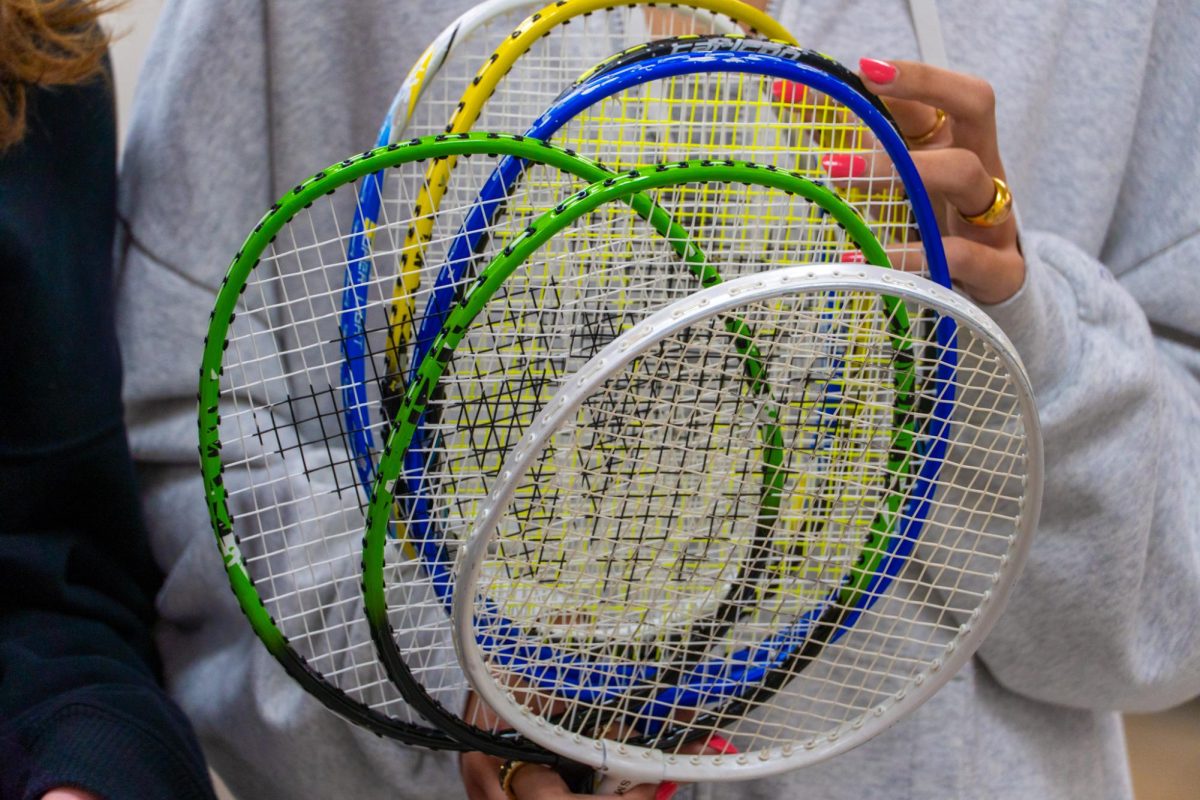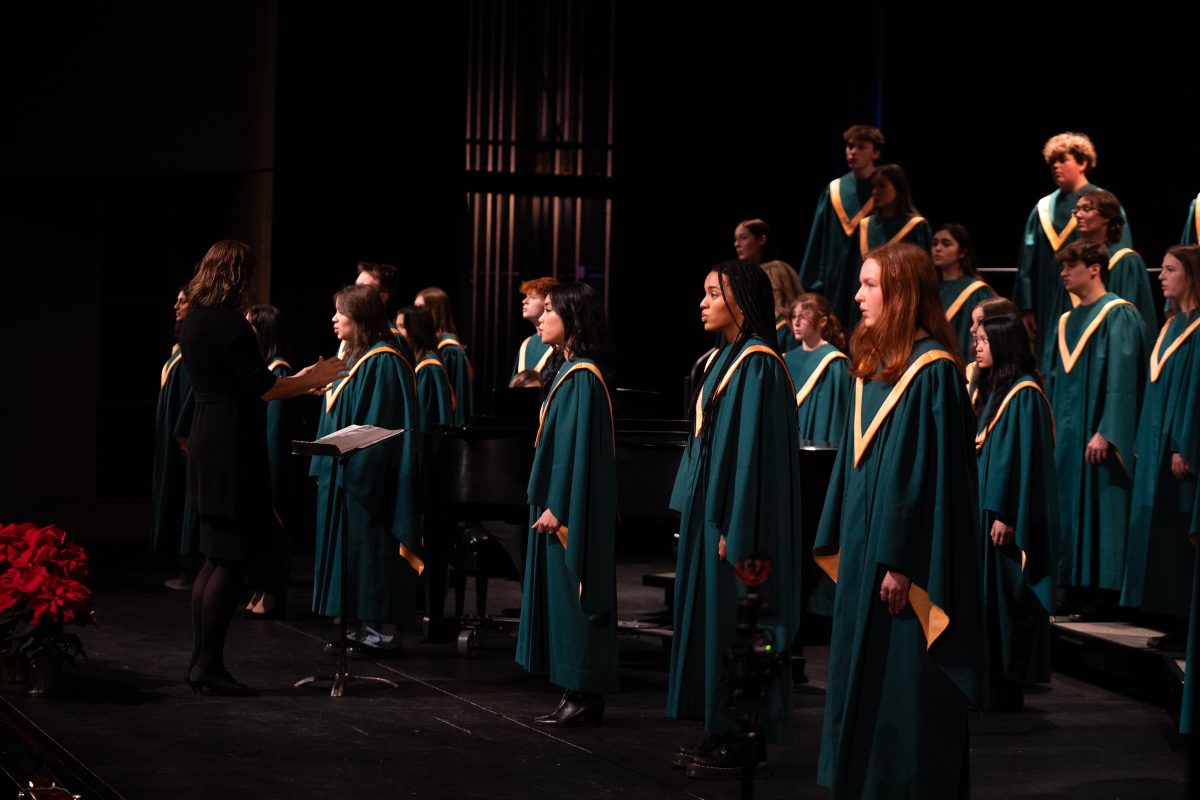Most students at Jesuit know that Ms. Laura Schick is a math teacher— but do they know that she is also a bag maker, potter, crafter, sewer, and is always pushing herself to learn new skills?
A librarian for five years and a math teacher for seven, Schick has been working at Jesuit High School since 2011. She loves speaking the math language with her students, and spends a lot of her time talking about abstract ideas.
To balance this time, she finds that working with her hands is just what she needs.
“[Crafting] is spending time engaged in the physical world and I find a lot of satisfaction in manipulating materials to be what I want,” Schick said.
She describes time spent in her home workshop as time that uses a different part of her brain than the math side. She can let her muscle memory take over and let her mind decompress.
Schick has loved her creative time since she was a child, but recalls it exploded during Covid-19 quarantine.
“I set a new year’s resolution that I would learn a new skill every month,” Schick said.
Since then, she has made an impressive array of bags, shoes, screen prints, paper crafts, woven baskets, knits and crochets, ceramic cups, a bench, a broom, and more.
As far as making time for her hobbies goes, Schick has accepted the ebb and flow of free time that comes with her way of life.
There are busy seasons, burnout, and times when she has lots of creative energy and time. Scheduling classes or blocking out time helps her also prioritize making.
Aside from working a different part of her brain and being a mindful break, Schick believes that working with your hands is an important life skill.
“Knowing how to work a machine, how to use the right tool, is very empowering and satisfying,” Schick said.
She’s taught family members how to sew because one of her values is being able to do and mend things for yourself.
Not only are such skills empowering, but they are sustainable.
To know how to repair clothes means they will stay out of the landfill longer. From hemming what’s too long, letting out what’s too short, and personalizing with stylish buttons— learning how to sew can improve the sustainability of your wardrobe.
Constantly trying new skills has reinforced the idea that no one is perfect and failure is expected.
“It informs my work as a teacher— I’m not a beginner at math but some of my students are. It helps me to be a beginner and remember what it feels like,” Schick said.
As a beginner potter, she made around forty bowls before they started to resemble bowls. And each one had evidence of the maker— thumbprints or divots or wonky edges.
“Everyone has to start somewhere. And it was a humbling start,” Schick said.
She realized she couldn’t hold herself to the standard of professional potters who had been practicing for years.
“Failing is 100% part of it, and it can be super frustrating to spend hours working and painting and have it break in the kiln,” Schick said.
But it’s the imperfections that make pieces personal.
To Schick, the mistakes we critique, pick at, or shame ourselves for makes our projects unique.
Schick mainly makes gifts for her loved ones and bags of leather and wool on commission.
“As I’m sewing, I think of that person and try to channel good vibes for them. That’s part of the fun,” Schick said.



